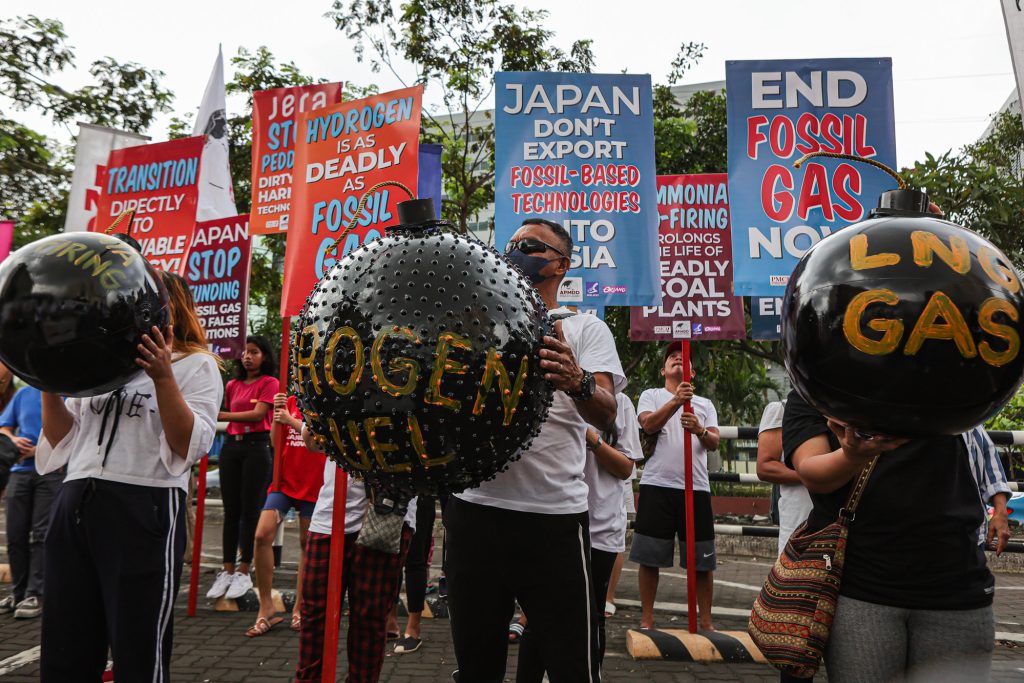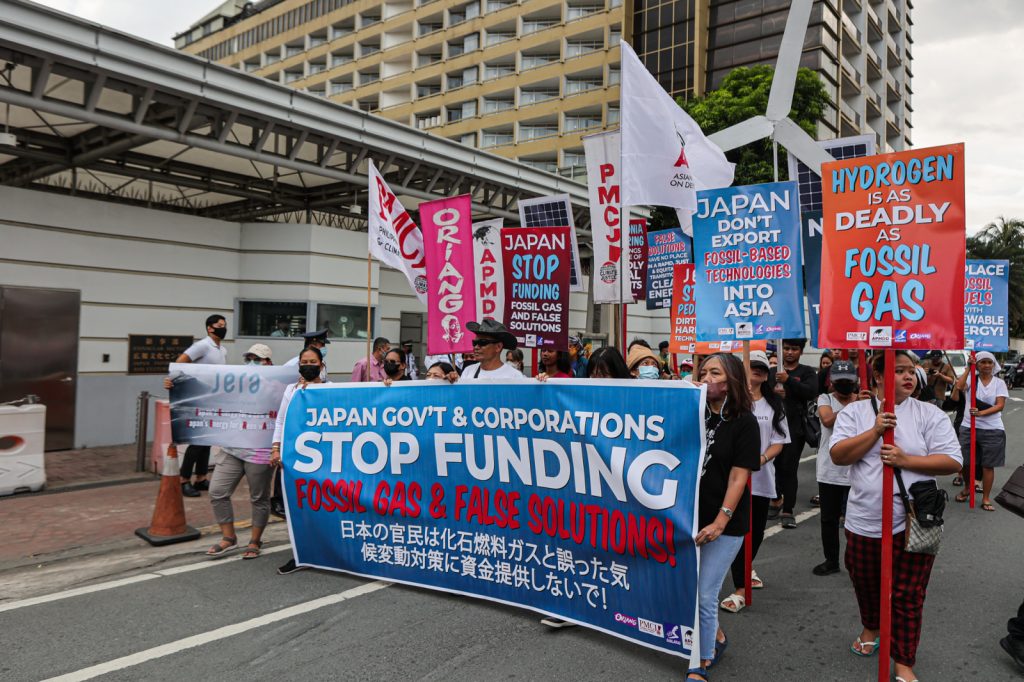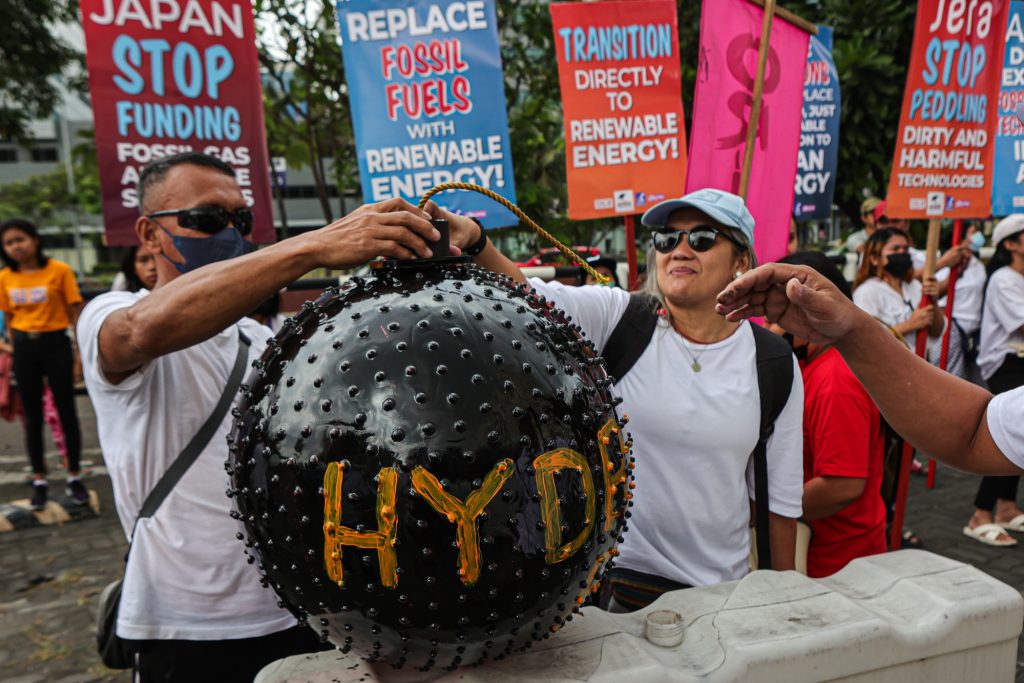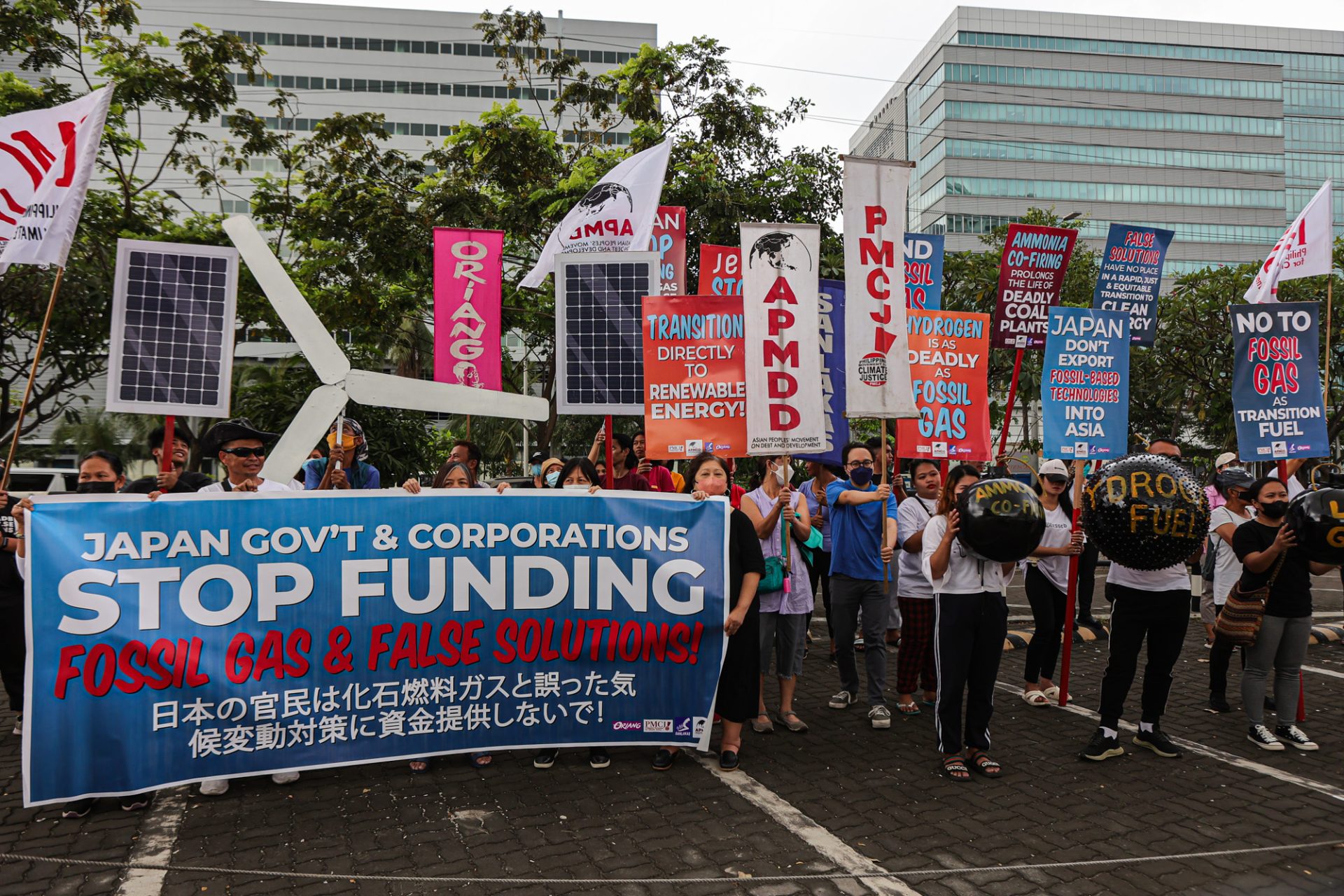Climate campaigners held a demonstration in front of the Japanese embassy in Manila on Thursday, March 2, to oppose Japan’s reported promotion of the critical role of LNG and gas in providing energy security and the shift to hydrogen and ammonia as replacement for fossil fuels.
The protest rally happened as the 5th Japan Energy Summit is taking place in Tokyo from February 28 to March 2.
“We register our strong opposition against fossil gas as transition fuel and reject the use of fossil-based technologies in Asia, such as hydrogen and ammonia,” read a statement from Lidy Nacpil, coordinator of the Asian Peoples’ Movement on Debt and Development (APMDD).
She said the Japanese government and financing institutions have been aggressively promoting fossil gas and hydrogen to capture the Asian market, especially countries that are planning to shift away from coal.
“However, fossil gas combustion is not different from coal in terms of negative impacts to climate, environment and public health,” said Nacpil.
The climate activist said fossil gas is a dirty energy source that is also responsible for more global warming than previously known. She said that using hydrogen as fuel will only serve to prolong the use of coal while carbon capture and storage (CCS), which Japan invests heavily on, are costly, technologically difficult and ineffective at reducing GHG emissions.
“The use of these false solutions will lead to failure in ensuring major cuts in greenhouse gases required to limit the Earth’s warming to 1.5 degrees Celsius to avoid a climate catastrophe,” said Nacpil.
The Japan Energy Summit tackles the country’s roadmap to carbon neutrality, with discussions focusing on the role of gas, LNG and hydrogen to achieve net-zero emissions. It is attended by global leaders in gas, LNG and hydrogen value chain.

Protest actions were also held outside the embassies in Bangladesh and Indonesia.
Protesters carried a big ticking bomb and streamers slamming fossil gas, hydrogen, ammonia as false solutions to the climate crisis and extremely dangerous to people and communities.
They also called on Japan to support just and equitable energy transition from fossil fuels to renewable energy.
“We urge Japan to support real decarbonization, and not prolong other countries’ dependence on fossil fuels,” said Flora Santos, president of the group Oriang.
She said decarbonization “must mean phasing out fossil fuels, not expanding gas consumption and replacing fossil fuels with fossil-based technologies that will extend the life of fossil fuels far into the future.”
Japan is the world’s leading financier of gas infrastructure globally, spending US$6.7 billion on gas projects on average each year between 2019 and 2021.
The Japanese government has stated it will continue financing upstream oil and gas developments.

Despite a G7 commitment to end international public finance for fossil fuels by the end of 2022, Japan remains one of the world’s biggest fossil fuel financiers, providing US$10.6 billion per year between 2019 and 2021.
A critical part of the Japanese government proposals for Asia’s decarbonization is to promote the co-firing of ammonia, hydrogen and biomass at thermal power plants.
The vast majority of ammonia and hydrogen is currently derived from fossil fuels, with substantial emissions.
Research finds that Japan’s goal of co-firing 20 percent ammonia at domestic coal power plants by 2030 would still generate nearly double the greenhouse gas emissions compared to standard gas-fired
power plants.
Even at rates of 50 percent ammonia co-firing, emissions would be comparable to emissions from gas power generation.
Researchers have also found that blue hydrogen co-firing can produce more greenhouse gas emissions than conventional gas-fired power generation.

“We urge Japan to increase support towards clean energy that meets the needs of communities, respects human rights and is consistent with the goals of the Paris Agreement,” read a statement Ian Rivera, national coordinator for the Philippine Movement on Climate Justice (PMCJ).
“We likewise demand a clear policy to rapidly phase out fossil fuels and deploy renewable energy at a pace consistent with a 1.5°C pathway,” he added.
The United Nations Intergovernmental Panel on Climate Change (IPCC) has set 2030 as the deadline for global greenhouse gas emissions to be halved to stabilize the climate and limit the global temperature to 1.5 degrees Celsius.







